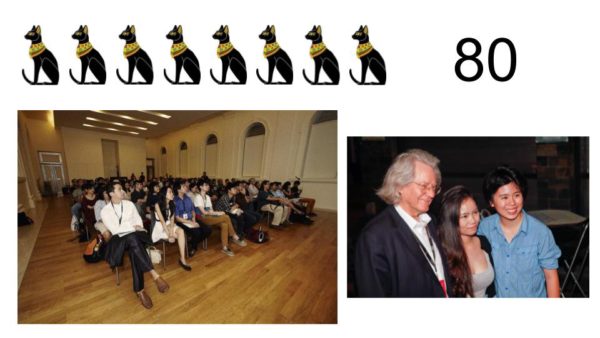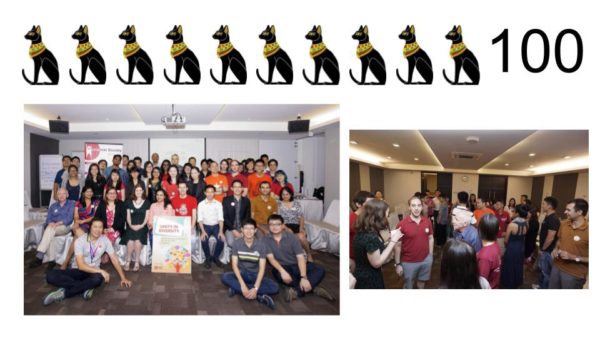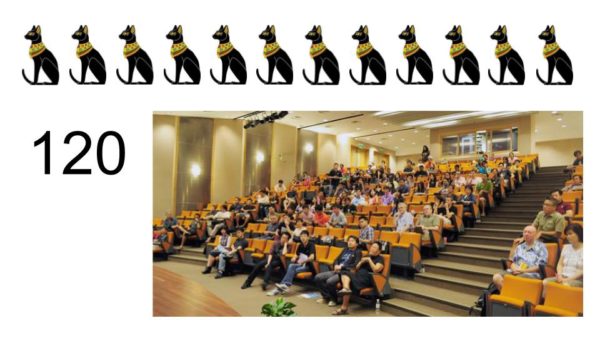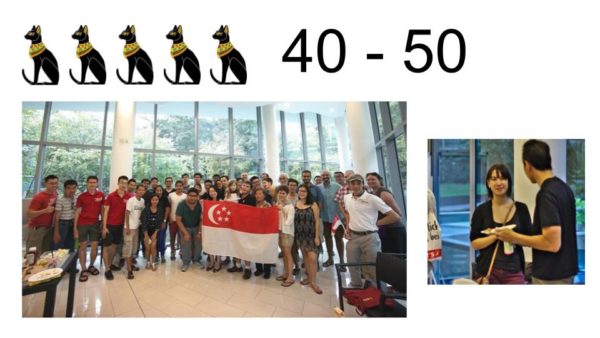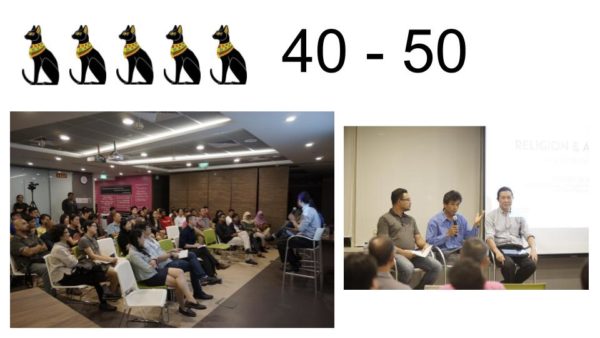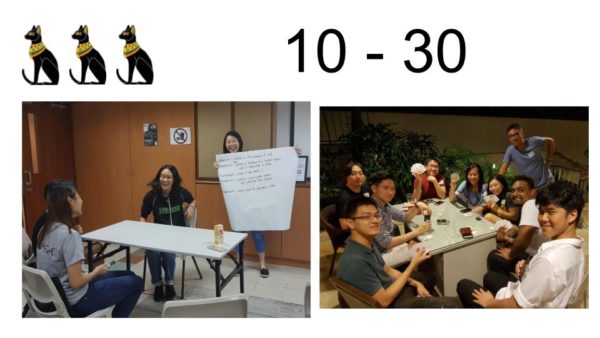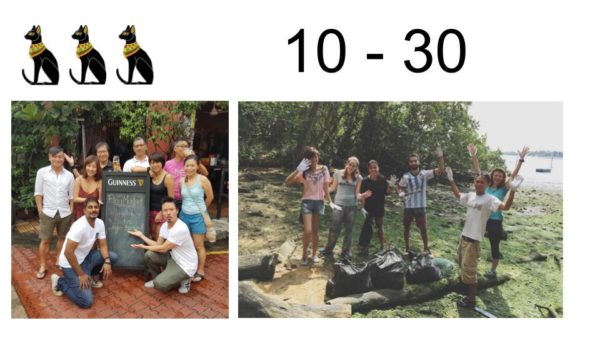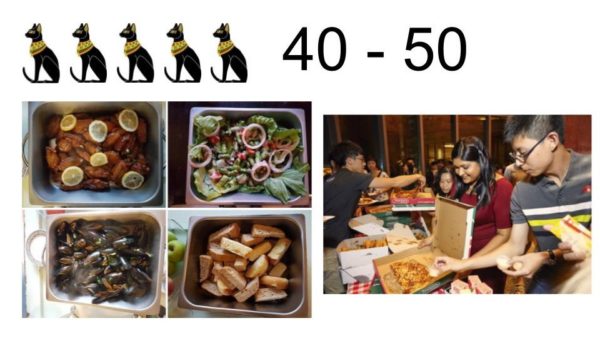As the saying goes, gathering atheists is like herding cats. Although the number of groups dedicated to the non-religious is growing worldwide, it’s still a hair-pulling experience organising large groups of atheists together (or any other type of non-religious people).
Humanists and atheists are very independently-minded. Gather a hundred of them, and you are likely to get a hundred opinions. They also remain wary of any tendency towards a religious-like setting, such as huge congregations and a large bureaucracy.
Having said that, not all is doom and gloom. The Humanist Society (Singapore) has our fair share of successes gathering the non-religious. Over the past seven years since our founding, we have carefully learned from attendance data (through photos and RSVPs) as well as qualitative feedback.
Here is our art of herding cats!
#1 Good speakers gather the most
People are most drawn to star power and foreign visitors. Visits by eminent figures such as AC Grayling and Jerry Coyne create huge crowds. Good content delivered by the relatively less famous also gather good crowds.
British philosopher A.C Grayling’s visit in 2013 attracted…
Asian Humanism Conference, featuring humanists around Asia, attracted…
Darwin Day 2013, featuring a panel of science speakers…
So, work hard to get good speakers. It can be in-house speakers too, tapping on the unrecognised talent and unsung heroes in your community.
Three things to remember when trying to get speakers:
- Strengthen your skills as an organizer. Learn how to book venues, balance your budget and market your event.
- Actively seek out academics at universities and authors of the books that your community likes to read.
- Remember to document your events, visually and in words, to establish a track record. This will help open doors to future speakers.
#2 Face-to-face meetings keep people coming back
Many questioning humanists and atheists like to discuss sensitive matters in large social media forums. The Humanist Society used to organise huge Facebook groups that serve as forums. They range from 100 to 500 members. However, as time passed, our active forum members have dwindled to less than 10.
Instead, we switched our focus to good social gatherings, where there are plenty of opportunities to meet face-to-face. Our BBQs and interfaith talks, for example, gather a good crowd of 40-50 people each year.
We believe it’s better to rely on the old-fashioned way, and not settle for merely online chats. We prefer the face-to-face meeting where voice tones, nuances, body language and misconceptions can be easily understood. It makes for better communication.
#3 Occasional small gatherings are necessary
Our well-attended events have one problem: Organisers are overstretched and they are not able to meet as many newcomers as they like. Quality and depth of socialisation are sacrificed in the pursuit of numbers.
Small and cosy gatherings of about 10-30 people can be quite effective in creating new friendships and having HTHT talk. One example is our monthly Humanist Cafe, informal gatherings held in town after work. Strong friendships and quality conversations result in regular attendees.
#4 Helping others brings happiness and satisfaction
All humans have altruistic tendencies, a product of our evolution. Helping the less fortunate makes us aware of our blessings, and brings about a sense of empowerment. In addition, the philosophy of humanism encourages people to help others and create a better world through reason, evidence and compassion.
The Humanist Society has organised beach clean-ups, fundraising book sales and a flea market, and collaborated with VWOs to help the needy. These activities gather about 10-30 participants.
#5 Meeting Maslow needs: BBQs and food outings
All humans love food and Singaporeans love their food absolutely. This is where the BBQ comes in useful again. Humanist groups can also visit good restaurants for year-end gatherings.
Food can provide easy talking points between strangers meeting for the first time. Shopping and cooking together also creates a lot of interaction opportunities. Introducing your country’s cuisine to foreign visitors is also fun and rewarding.
Having presented these five tips, the Humanist Society (Singapore) recognises that it has much to learn from other humanist and atheist groups worldwide. There are many other ways to grow a humanist and atheist organisation, such as publicising yourself in newspapers, networking with other NGOs and raising funds.
There are also various methods adopted by humanists and atheists in other countries that are more suitable in their context. For example, holding street parades for more visibility, or meeting at highly secure areas within private properties.
But to humanist and atheist organisers anywhere on Earth, every time you feel that organising gets tough and nobody comes to your events, we humbly offer these five tips from Singapore’s humanist community. Whatever happens, stay strong and keep going.






